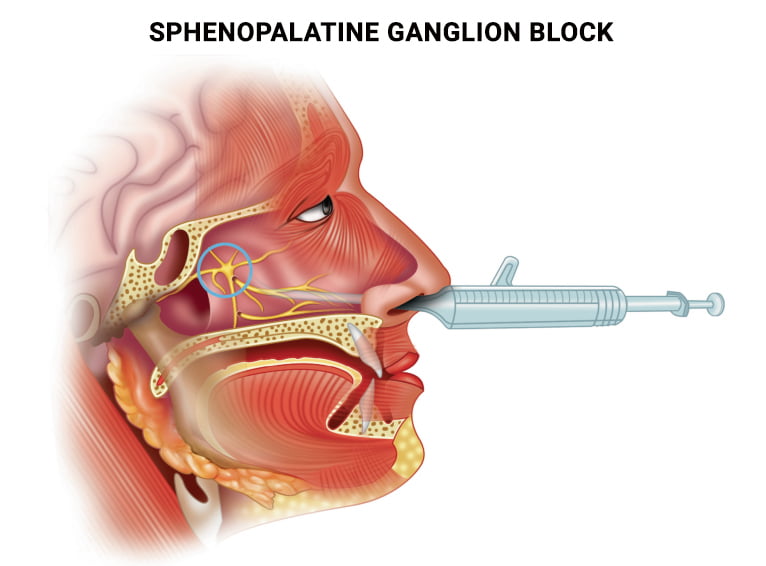
Interventional Pain Management in Kansas City
Interventional pain management injections provide a specialized approach to treating both acute and chronic pain by directly targeting the source of discomfort. These minimally invasive procedures deliver medication into precise areas—such as joints, nerves, or soft tissues—to reduce inflammation, relieve nerve compression, and block pain signals. The goal is to provide lasting pain relief, improve mobility, and help patients return to normal daily activities.
For individuals injured in car accidents or dealing with work-related injuries, interventional pain management can be especially effective. Conditions such as whiplash, herniated discs, sciatica, and nerve damage often respond well to these targeted treatments. By delivering medication directly to the injured area, patients may experience quicker pain relief and improved function compared to more generalized approaches.
At Keystone Medical Group in Kansas City, our experienced team specializes in a wide range of interventional pain management procedures, including occipital nerve blocks, SPG blocks, epidural steroid injections, facet joint injections, and radiofrequency ablation (RFA). Our physicians are trained in the latest techniques to ensure safe and effective care. We also work closely with patients recovering from personal injury cases and workers’ compensation claims, tailoring treatment plans to meet their unique medical and functional needs.
Interventional pain management injections are often part of a comprehensive recovery plan. Not only do they reduce immediate pain, but they also help patients participate more fully in physical therapy and rehabilitation programs, which are critical for long-term recovery. By combining advanced injection therapies with a holistic, multidisciplinary approach, Keystone Medical Group helps patients achieve meaningful, sustainable improvements in their quality of life.
If you are struggling with pain after a car accident, workplace injury, or sports injury in Kansas City or nearby areas, Keystone Medical Group is here to help. Contact us today at 816-705-2842 to schedule a consultation and learn how interventional pain management can support your recovery.
Our Services
Get in Touch
Trigger Point Injections
Trigger point injections are a valuable treatment option for car accident victims experiencing localized muscle pain and restricted movement due to muscle knots or trigger points. These injections involve the precise administration of a local anesthetic, sometimes combined with a corticosteroid, directly into the affected muscle. By targeting the specific area of tension, trigger point injections help relax the muscle and alleviate pain, facilitating more comfortable stretching and movement.
This intervention not only provides immediate relief but also allows individuals to engage in physical therapy and rehabilitative exercises more effectively, promoting faster healing and a return to normal activities. For patients recovering from car accidents, trigger point injections can be an integral part of a comprehensive treatment plan, addressing pain management needs while enabling participation in therapies designed to restore function and mobility.


Epidural Steroid Injections
Medial Branch Block Injection

Peripheral Nerve Blocks
Occipital Nerve Blocks
Occipital nerve block injections are a vital component of pain management for individuals suffering from chronic headaches and migraines following car accidents. These injections target the occipital nerves located at the base of the skull, which are often implicated in headache disorders. By administering local anesthetics and sometimes corticosteroids directly to these nerves, occipital nerve blocks effectively block pain signals and provide rapid relief from headaches. This treatment is often integrated into comprehensive headache management plans, offering patients a life-changing solution to their debilitating symptoms. By alleviating headaches, occipital nerve block injections enable individuals to resume their daily activities without being hindered by persistent pain, significantly improving their overall quality of life.


Facet Joint Injections
Sphenopalatine Nerve Blocks
Sphenopalatine ganglion (SPG) block injections are an effective treatment option for patients experiencing chronic headaches, migraines, or facial pain, often following traumatic brain injuries or car accidents. The sphenopalatine ganglion, located deep within the nasal cavity, plays a key role in transmitting pain signals associated with these conditions. By applying a local anesthetic to this nerve cluster, SPG blocks can rapidly interrupt pain pathways and provide meaningful relief. This procedure is frequently incorporated into comprehensive headache and pain management programs, helping patients reduce their reliance on medications while improving daily function. For many individuals, SPG blocks restore quality of life by easing persistent pain and allowing a return to normal activities.

Radiofrequency Ablations
Radiofrequency ablation (RFA) can also play a valuable role in managing pain from acute injuries that fail to improve with conservative care. After a car accident or traumatic event, some patients experience intense pain from irritated spinal or peripheral nerves that limits their ability to move or heal properly. By using controlled radiofrequency energy to temporarily disrupt the overactive pain pathways, RFA reduces discomfort and allows patients to participate more fully in physical therapy and rehabilitation. While injections and medications may provide only short-term relief, RFA offers longer-lasting results that support faster recovery and help prevent the transition from acute to chronic pain. For individuals struggling with severe pain after an accident, RFA can be a key step toward regaining function and restoring quality of life.
